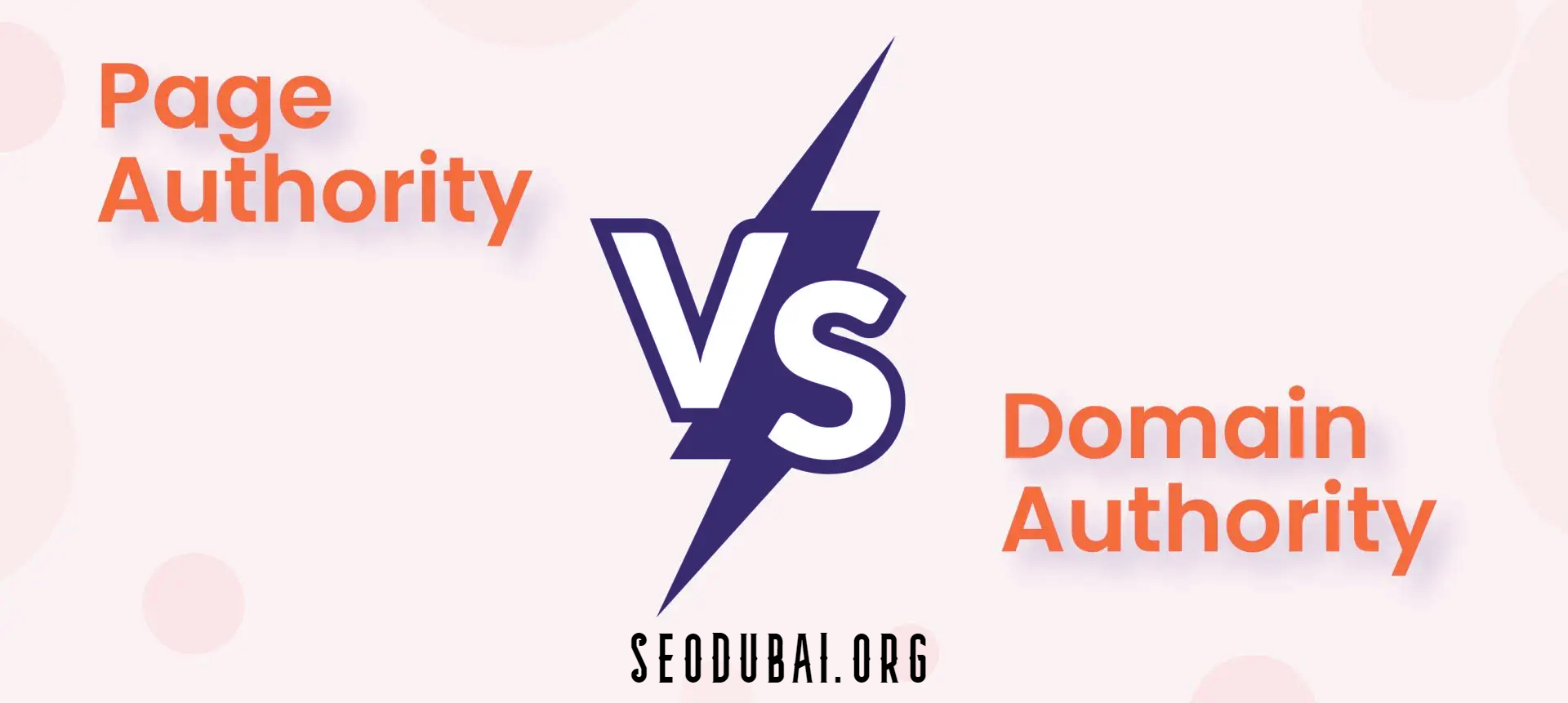Domain Authority vs. Page Authority: What's More Important?

In the realm of search engine optimization (SEO), metrics like Domain Authority (DA) and Page Authority (PA) are crucial indicators used by webmasters, marketers, and SEO professionals to measure the potential of a website or a specific webpage to rank on search engine results pages (SERPs). Developed by Moz, these metrics have become essential tools in the SEO toolkit. But when it comes to deciding which one holds more significance, the debate of Domain Authority vs. Page Authority often emerges. This article delves deep into the nuances of both metrics, exploring their definitions, differences, uses, and significance, to help you understand which one might be more important for your specific needs.
Understanding Domain Authority
What is Domain Authority?
Domain Authority is a metric created by Moz to predict how well a website will rank on SERPs. It scores websites on a scale from 1 to 100, with higher scores indicating a greater ability to rank. This score is determined using multiple factors, including linking root domains and the total number of links, in conjunction with Moz's machine learning algorithms.
How is Domain Authority Calculated?
Domain Authority is calculated using a complex algorithm that considers over 40 factors, including:
- Linking Root Domains: The number of unique backlinks pointing to your website from other domains.
- Quality of Backlinks: The quality and relevance of the backlinks. Links from high-authority sites contribute more to DA.
- Content Quality: The overall quality of content on the site, including relevance and depth.
- Social Signals: The level of engagement and shares your content receives on social media platforms.
- MozRank and MozTrust: MozRank measures the popularity of a website's links, while MozTrust evaluates the trustworthiness based on links from trusted sites.
It's important to note that DA is a comparative metric, meaning it’s best used as a relative score rather than an absolute one. This means a DA score of 30 may be excellent in a niche market with less competition but considered low in a highly competitive industry.
Understanding Page Authority
What is Page Authority?
Page Authority, similar to Domain Authority, is a metric developed by Moz that predicts how well a specific webpage will rank on search engine results pages. PA is also scored on a scale from 1 to 100, with higher scores suggesting a greater likelihood of ranking higher in SERPs.
How is Page Authority Calculated?
Page Authority is calculated based on the same methodology as Domain Authority but focuses on individual pages instead of entire domains. Key factors include:
- Linking Root Domains to the Page: The number of unique backlinks pointing to a specific page.
- Page-specific Metrics: Metrics unique to the page, such as keyword usage and optimization.
- Page Content Quality: The depth, relevance, and freshness of the content on the page.
- Internal Links: The internal linking structure and how it supports the page.
Like DA, Page Authority is a predictive metric and should be used as a relative score. A high PA indicates that a page has a strong potential to rank well, especially when optimized with relevant keywords and quality content.
Key Differences Between Domain Authority and Page Authority
Understanding the differences between Domain Authority and Page Authority is crucial in leveraging them effectively for SEO strategies. Here are the main distinctions:
-
Scope:
- Domain Authority: Measures the overall strength of the entire domain, including all its pages.
- Page Authority: Focuses on the ranking potential of a specific page within the domain.
-
Factors Considered:
- Domain Authority: Considers domain-level metrics such as domain age, domain reputation, and total number of backlinks across all pages.
- Page Authority: Relies heavily on page-specific factors like page content, on-page SEO elements, and page-specific backlinks.
-
Use Cases:
- Domain Authority: Useful for evaluating the overall strength of a website and comparing it with competitors.
- Page Authority: Best for assessing the ranking potential of individual pages, optimizing content, and focusing on specific keyword targets.
-
Impact of Internal Linking:
- Domain Authority: Internal links contribute to overall domain strength, impacting DA.
- Page Authority: Internal links directly affect PA by distributing authority across pages, enhancing the ranking potential of specific pages.
The Importance of Domain Authority
Why Domain Authority Matters
-
Brand Reputation and Trust:
- A higher Domain Authority indicates a reputable and trustworthy site, which can influence user trust and engagement.
-
Competitive Benchmarking:
- DA is useful for benchmarking against competitors. A higher DA compared to competitors suggests a competitive edge in the market.
-
Link Building Strategy:
- Understanding DA can help in devising an effective link-building strategy. Targeting high-DA sites for backlinks can significantly boost your site’s authority.
-
Long-term SEO Strategy:
- Focusing on increasing Domain Authority is a long-term strategy that requires consistent effort in creating quality content and building strong backlinks.
How to Improve Domain Authority
-
Quality Content Creation:
- Create informative, engaging, and relevant content that attracts organic backlinks and social shares.
-
Backlink Acquisition:
- Focus on acquiring high-quality backlinks from authoritative sites within your industry or niche.
-
Technical SEO:
- Ensure your website is technically sound with optimized site speed, mobile-friendliness, and proper indexing.
-
Internal Linking:
- Develop a robust internal linking strategy that strengthens the link structure within your site.
-
Regular Monitoring:
- Use tools like Moz, Ahrefs, or SEMrush to monitor your Domain Authority and make necessary adjustments to your strategy.
The Importance of Page Authority
Why Page Authority Matters
-
Content Optimization:
- PA is essential for identifying which pages have the most potential for ranking and optimizing them with targeted keywords.
-
Targeted SEO Efforts:
- Allows for more focused SEO efforts by targeting high-PA pages for specific keyword strategies.
-
Performance Tracking:
- Monitor the performance of individual pages and refine content strategies based on PA scores.
-
Influence of Content Quality:
- PA emphasizes the importance of content quality, ensuring that high-quality, relevant, and well-optimized content is produced.
How to Improve Page Authority
-
Keyword Optimization:
- Use relevant keywords strategically within the content, headings, and meta tags to enhance page optimization.
-
Quality Backlinks:
- Acquire quality backlinks specific to the page to increase its authority and ranking potential.
-
Engaging Content:
- Produce engaging content that encourages user interaction, social sharing, and natural backlinking.
-
Internal Linking:
- Strengthen the page’s authority through internal links from other high-PA pages within the domain.
-
Regular Updates:
- Keep the page content fresh and updated to maintain relevance and authority over time.
Domain Authority vs. Page Authority: Which is More Important?
The question of whether Domain Authority or Page Authority is more important doesn’t have a one-size-fits-all answer. Instead, it depends on your specific goals, the nature of your website, and your SEO strategy. Here are some scenarios to consider:
When Domain Authority Might Be More Important:
-
New Websites:
- For new websites, building a strong Domain Authority can lay a solid foundation for long-term SEO success.
-
Brand Building:
- If your goal is to establish a strong online presence and brand reputation, focusing on increasing Domain Authority can be beneficial.
-
Broad SEO Strategy:
- When implementing a broad SEO strategy that encompasses the entire website, DA becomes a crucial metric.
-
Competitive Analysis:
- Use Domain Authority to compare your website’s strength with competitors and identify opportunities for improvement.
When Page Authority Might Be More Important:
-
Content-focused Strategy:
- For content-heavy websites, focusing on Page Authority allows for targeted optimization of key pages.
-
Specific Keyword Targeting:
- If your goal is to rank specific pages for targeted keywords, PA becomes the more relevant metric.
-
Landing Pages:
- For businesses relying on landing pages for conversions, optimizing Page Authority is critical.
-
E-commerce Sites:
- For e-commerce websites, PA is crucial for product pages where each page’s performance directly impacts sales.
Integrating Domain Authority and Page Authority into Your SEO Strategy
To effectively leverage both Domain Authority and Page Authority, it’s essential to integrate them into your overall SEO strategy. Here’s how:
-
Holistic Approach:
- Consider both DA and PA in your SEO efforts. While building overall domain strength, focus on optimizing key pages.
-
Balanced Link Building:
- Aim for a balanced link-building strategy that enhances both domain-wide authority and page-specific authority.
-
Content Strategy:
- Develop a content strategy that addresses the needs of the entire website while targeting high-potential pages.
-
Regular Analysis:
- Regularly analyze both DA and PA scores to identify trends, successes, and areas for improvement.
-
Adaptation and Flexibility:
- Stay flexible and adapt your strategy based on changes in DA, PA, and search engine algorithms.
Conclusion
In conclusion, both Domain Authority and Page Authority play significant roles in determining the SEO success of a website. While Domain Authority provides an overall measure of a site’s potential to rank, Page Authority offers insights into the performance of individual pages.
Ultimately, the importance of each metric depends on your specific goals and the nature of your website. By understanding the differences and leveraging both metrics effectively, you can create a comprehensive SEO strategy that enhances your website’s performance, drives organic traffic, and achieves your business objectives. Whether you’re building a brand, optimizing key pages, or engaging in competitive analysis, both DA and PA offer valuable insights that can guide your efforts toward SEO success.


